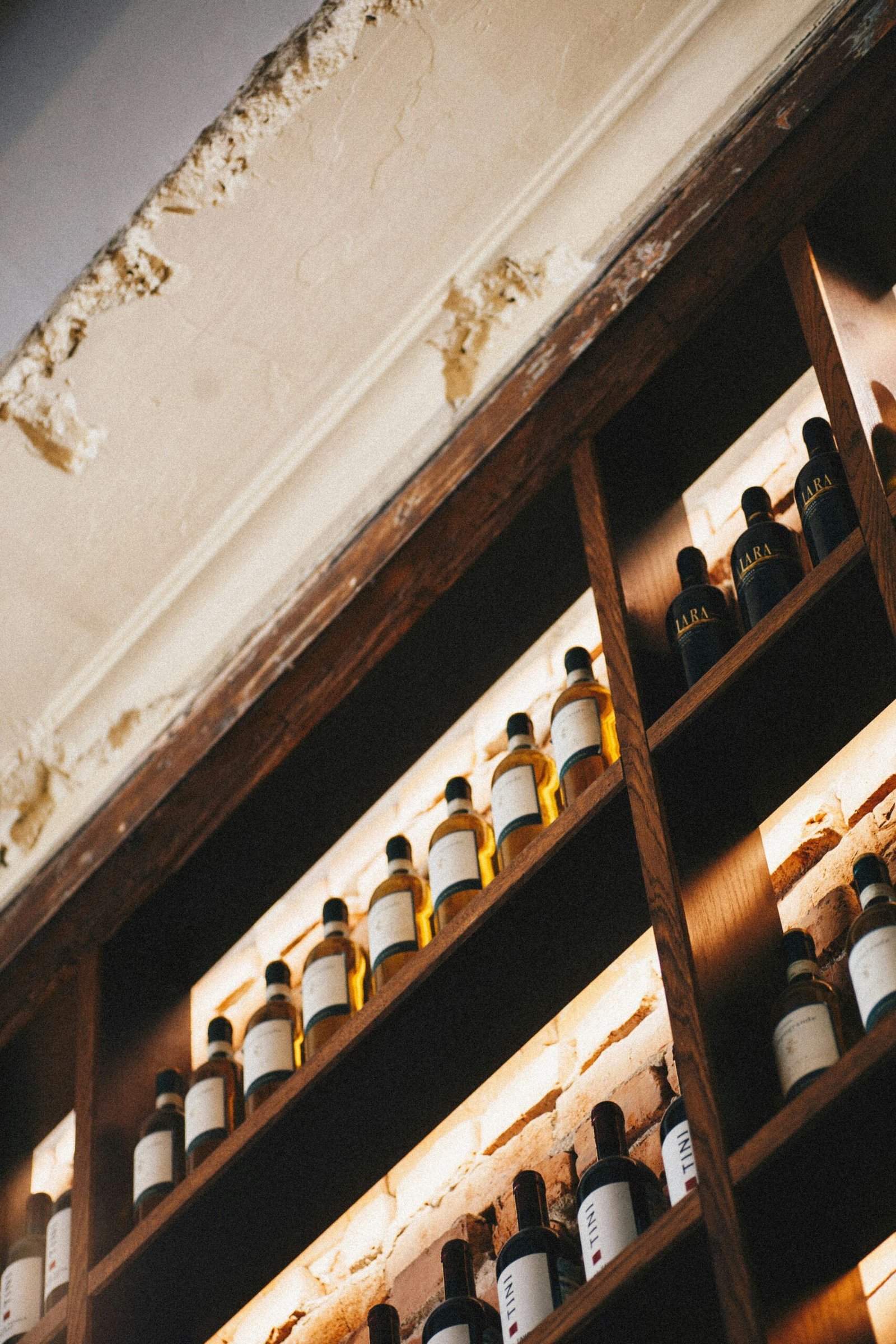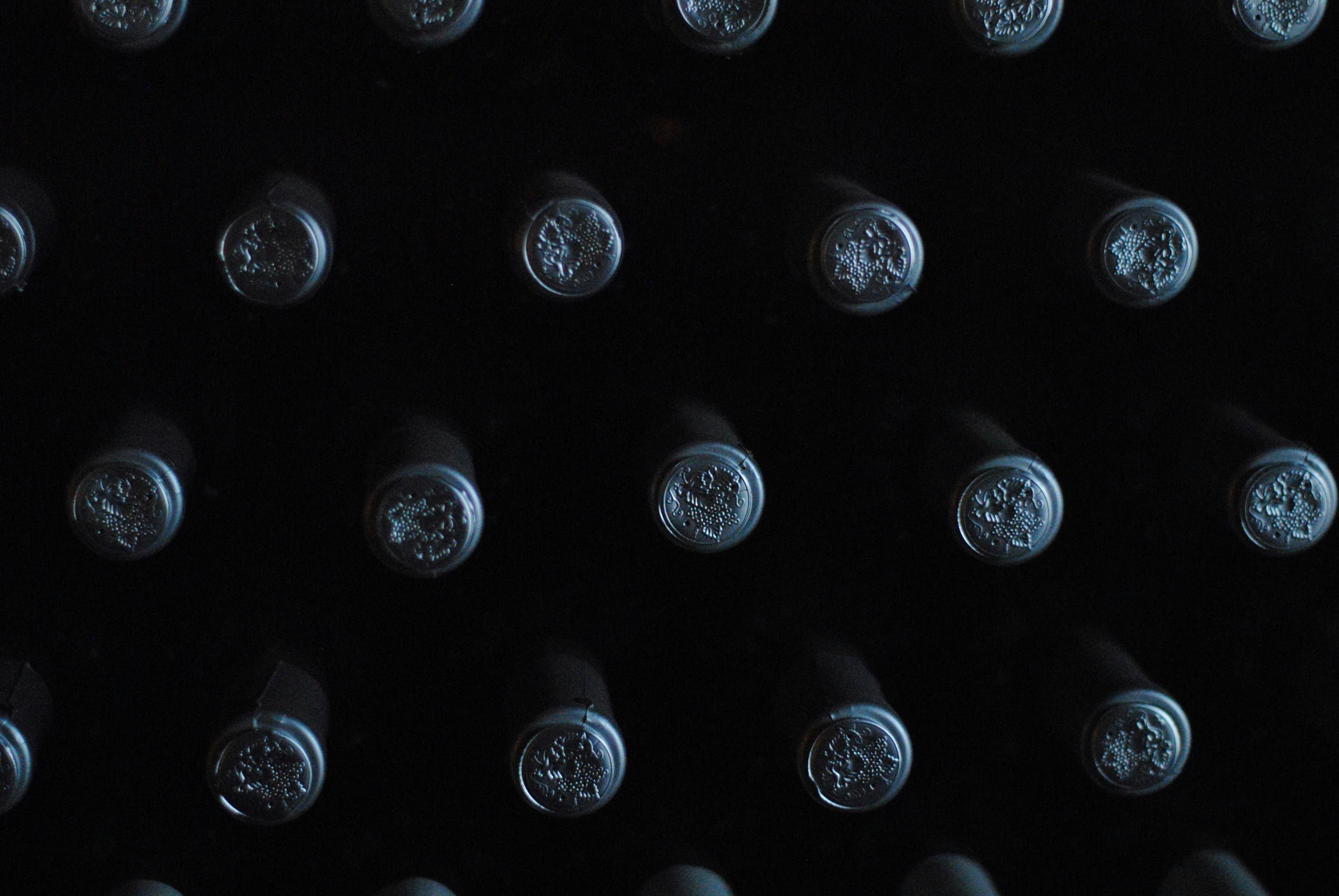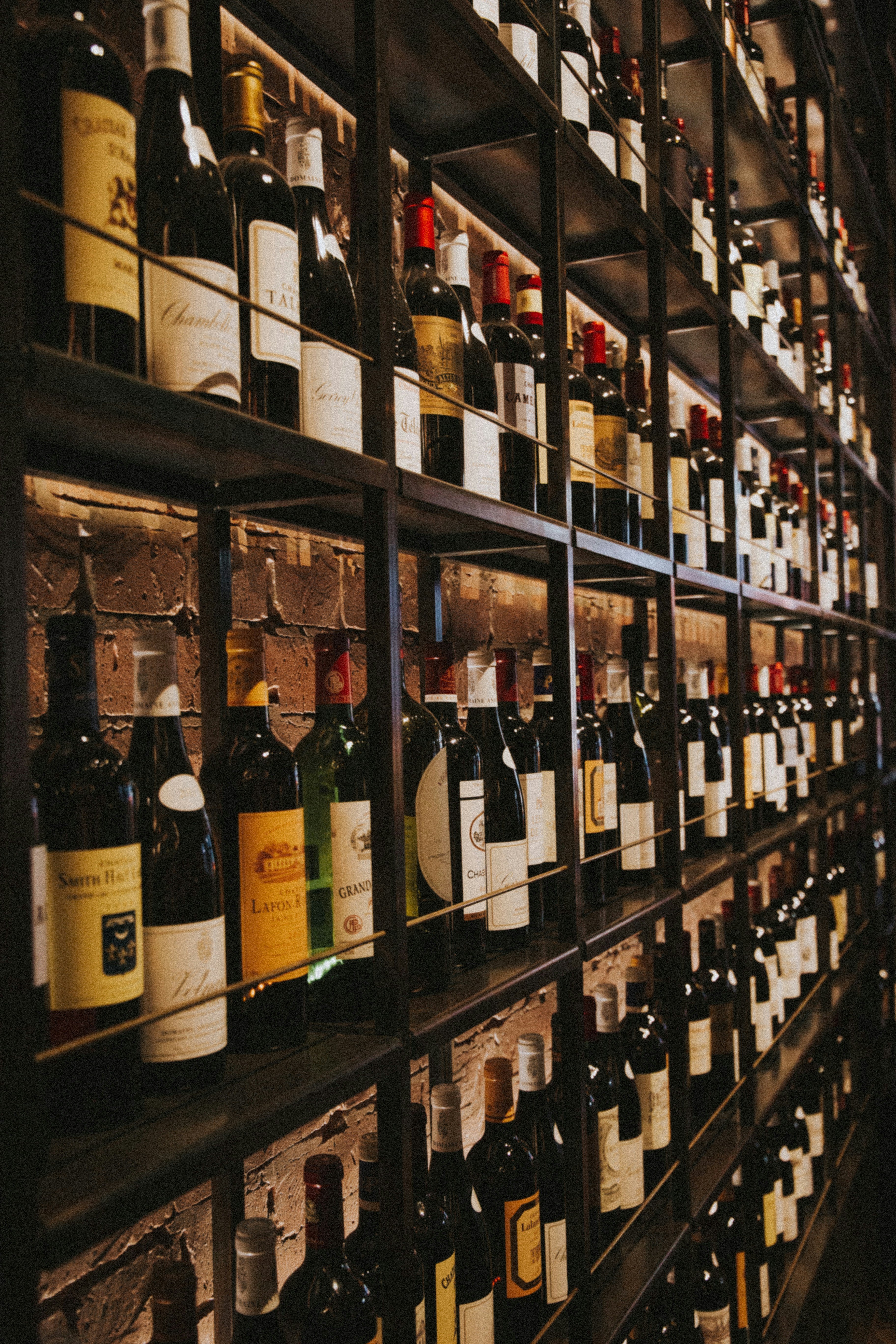Have you ever wondered how long that bottle of wine will stay good after you’ve opened it? It’s a common concern, especially if you don’t finish a whole bottle in one sitting. In this article, we’ll explore the lifespan of wine once it has been uncorked and provide some tips on how to make it last longer. So sit back, relax, and let’s find out how long your favorite wine will stay delicious and drinkable after opening.
Factors Affecting the Shelf Life of Wine
When it comes to the shelf life of wine, there are several key factors that can affect its longevity. Understanding these factors can help you ensure that your wine stays fresh and enjoyable for as long as possible. From the type of wine to storage conditions and even the chemical composition, all these elements play a role in determining how long your wine will last.
Type of Wine
The type of wine you are dealing with has a significant impact on its shelf life. The general rule of thumb is that red wines tend to have a longer shelf life compared to white wines. This is because red wines typically have higher levels of tannins, acidity, and alcohol, which act as natural preservatives. However, it is worth noting that not all red wines are created equal, and some may still have a shorter shelf life than others.
Storage Conditions
Proper storage conditions are crucial for preserving the quality and longevity of wine. Wine is sensitive to temperature, light, humidity, and vibrations. Ideally, wine should be stored in a cool, dark place with a consistent temperature between 45°F and 65°F (7°C and 18°C). Fluctuations in temperature can cause the wine to deteriorate quickly. Additionally, exposure to direct sunlight or fluorescent light can lead to premature aging and spoilage. Finally, excessive humidity can damage the wine labels and promote mold growth, while vibrations can disturb the sediment and affect the wine’s overall quality.
Bottle Closure
The type of closure used for the wine bottle can also impact its shelf life. The two most common types of closures are cork and screw cap. Cork closures allow a small amount of oxygen to interact with the wine over time, which can contribute to its aging process. However, this also means that there is a higher risk of oxidation and spoilage if the cork is faulty or not properly inserted. On the other hand, screw caps create a tighter seal, reducing oxygen exposure and the risk of spoilage. This makes them an excellent choice for wines intended for early consumption.
Chemical Composition
The chemical composition of wine can influence its shelf life as well. The balance of acidity, tannins, sugar, and alcohol all play a role in preserving the wine. Wines with higher acidity and tannin levels tend to have a longer shelf life, as they can act as natural preservatives. In contrast, sweeter wines or those with lower acidity may be more prone to spoilage. Additionally, the alcohol content of the wine can also contribute to preservation. Higher alcohol levels act as a disinfectant and can help prevent spoilage by inhibiting the growth of bacteria and other microorganisms.
Prior Preservation Methods
The techniques used during the winemaking process can also affect the shelf life of wine. Some winemakers employ methods such as sterile filtration and cold stabilization to remove or prevent the growth of microorganisms that can cause wine spoilage. These preservation methods can significantly extend the shelf life of the wine by minimizing the risk of bacterial or yeast growth.
Red Wine
Red wine is known for its complex flavors and ability to age gracefully. Understanding how to properly store and use red wine can help you make the most of its shelf life.
Unrefrigerated Red Wine
Unrefrigerated red wine should be stored in a cool, dark place with a consistent temperature. It is best to lay the bottles on their sides to keep the corks moist and prevent them from drying out. Red wine stored this way can generally last for 3-5 years, depending on the specific wine.
Refrigerated Red Wine
If you have opened a bottle of red wine and want to save it for later, storing it in the refrigerator can help prolong its shelf life. Make sure to re-cork the bottle tightly to minimize oxygen exposure. Refrigerated red wine can stay fresh for 3-5 days, but its flavor may start to deteriorate after the first day or two.
Cooking with Red Wine
Red wine can also be a fantastic ingredient for cooking. When using red wine in your recipes, opt for a wine that you would enjoy drinking. The heat from cooking will evaporate the alcohol, leaving behind the flavors and acidity of the wine. However, keep in mind that using expired or low-quality red wine can negatively impact the taste of your dishes.

White Wine
White wine is known for its crisp and refreshing flavors. Proper storage and handling of white wine can maximize its shelf life.
Unrefrigerated White Wine
Like red wine, unrefrigerated white wine should be stored in a cool, dark place. However, white wine is generally more delicate than red wine and is best consumed within 1-3 years of its vintage date. Be sure to check the specific wine’s recommendations for optimal storage and consumption.
Refrigerated White Wine
If you have opened a bottle of white wine and want to save it for later, refrigeration is essential. White wine should be stored in the refrigerator with a tightly re-corked bottle to prevent oxidation. Properly refrigerated white wine can stay fresh for 3-5 days, but it is best to consume it within the first day or two for optimal flavor.
Cooking with White Wine
White wine can enhance the flavors of many dishes, be it seafood, poultry, or sauces. When using white wine for cooking, it is crucial to choose a wine that complements the flavors of your ingredients. Avoid using wines that have turned or gone bad, as they can negatively impact the taste of your dishes.
Sparkling Wine
Sparkling wine adds a touch of elegance and celebration to any occasion. Understanding how to preserve and enjoy sparkling wine can ensure that you get the most out of its bubbly goodness.
Unrefrigerated Sparkling Wine
Unrefrigerated sparkling wine is best stored in a cool, dark place away from temperature fluctuations. The effervescence of sparkling wine relies on its carbonation, which can be negatively affected by high temperatures. While sparkling wines generally have a shorter shelf life than still wines, they can still be enjoyed for 1-3 years depending on the specific wine.
Refrigerated Sparkling Wine
To retain the carbonation and freshness of sparkling wine, it is essential to store it in the refrigerator. Keep the bottle tightly sealed with either its original cork or a sparkling wine stopper. Refrigerated sparkling wine can stay enjoyable for up to 3-5 days after opening, although the bubbles may dissipate over time.
Cooking with Sparkling Wine
Sparkling wine can add a delightful touch to various dishes, such as seafood, desserts, and even cocktails. When cooking with sparkling wine, opt for a dry or semi-dry variety to balance the flavors of your dishes. Be mindful of the alcohol content, as it may not completely cook off during the cooking process.
Fortified Wine
Fortified wines are known for their higher alcohol content, sweetness, and fortified properties. Preserving the flavors and integrity of fortified wine is essential to fully enjoy them.
Unrefrigerated Fortified Wine
Fortified wines, such as Port or Sherry, can be stored in a cool, dark place just like other wines. Their high alcohol content and sugar act as preservatives, allowing them to last longer than regular wines. Unopened fortified wines can last for several years, while opened bottles can stay fresh for weeks to months, depending on the specific wine.
Refrigerated Fortified Wine
While refrigeration is not necessary for unopened fortified wines, it can help extend the shelf life of opened bottles. Keeping the fortified wine in the refrigerator with a tightly re-corked or re-sealed bottle can keep it fresh for several weeks or even a few months.
Cooking with Fortified Wine
Fortified wines are prized ingredients in numerous culinary recipes, including sauces, marinades, and desserts. The sweetness, depth, and complexity of fortified wines can elevate the flavors of your dishes. When using fortified wine for cooking, choose one that complements the flavors of your ingredients, and be mindful of the alcohol content and sweetness.
Tips for Prolonging the Shelf Life of Wine
While each type of wine has its own recommended storage and handling methods, there are general tips that can help you prolong the shelf life of any wine.
Re-Corking or Re-Sealing the Bottle
After opening a bottle of wine, it is crucial to re-cork or re-seal it tightly. This helps minimize oxygen exposure, which can lead to oxidation and spoilage. A vacuum seal or wine stopper can be used to create a more airtight closure, preserving the wine’s freshness for a longer period.
Storing in the Refrigerator
When in doubt, refrigeration is generally a safe bet for preserving opened wine. The cool temperature slows down the aging and oxidation processes, helping the wine stay fresh for a longer duration. Make sure to store the wine upright in the refrigerator to reduce the risk of potential spills or leaks.
Avoiding Exposure to Air
Oxygen is one of the biggest enemies of wine, as it can accelerate the aging and spoilage processes. When pouring wine, be mindful to avoid excessive splashing or agitation, as this can introduce more air into the bottle. It is also advisable to pour smaller quantities of wine into a separate container or glass to minimize the surface area exposed to air.
Using a Wine Preserver
Wine preservers, such as vacuum pumps or inert gas sprays, can help create a barrier between the wine and the air. These tools work by removing excess air or replacing it with a non-reactive gas, effectively slowing down oxidation. While wine preservers may not stop the degradation process entirely, they can help extend the wine’s freshness for an additional day or two.
Consuming Wine Leftovers
When it comes to leftover wine, it is best to consume it sooner rather than later. Wine is at its best when fresh, so it may not taste as good after a few days. However, leftover wine can still be used for cooking or as an ingredient in cocktails or sangria. Just be sure to taste it before using it to ensure it has not gone bad.
Signs of Wine Spoilage
To determine if a wine has gone bad, there are a few key signs to look out for:
Oxidation
Oxidized wine often develops a brownish or orange hue and may have a flat or dull taste. It may also have a noticeable vinegar-like smell. Oxidation occurs when the wine has been exposed to too much air, causing it to lose its freshness and vibrancy.
Vinegar-Like Smell
If a wine smells strongly of vinegar or nail polish remover, it is likely that the wine has spoiled due to acetic acid bacteria. These bacteria thrive in the presence of oxygen and can produce undesirable aromas and flavors.
Cloudiness or Sediment
While a small amount of sediment at the bottom of a bottle is normal, excessive cloudiness or large, chunky sediments are signs of spoilage. This can indicate issues with the wine’s filtration or bottling process.
Off Flavors or Aromas
If a wine smells or tastes off, with unpleasant notes of mold, mustiness, or other strange odors, it is best to avoid drinking it. Trust your senses and don’t take any risks when it comes to consuming potentially spoiled wine.
Safety Precautions and Consumption Guidelines
While wine can be enjoyed responsibly, it is essential to consider certain guidelines and safety precautions.
Good Hygiene Practices
When handling wine, make sure to practice good hygiene. Wash your hands before handling the bottle or pouring the wine to avoid contaminating it. Additionally, properly clean and sanitize any wine glasses, decanters, or other utensils used for wine consumption.
Wine Allergies
Some individuals may have allergies or sensitivities to certain components of wine, such as sulfites or histamines. If you experience adverse reactions after consuming wine, it is advisable to consult a healthcare professional for guidance and potential allergy testing.
Pregnancy and Alcohol
It is important to note that consuming alcohol during pregnancy can pose risks to the developing baby. It is generally recommended for pregnant women to avoid drinking alcohol altogether. If you have any concerns or questions, consult a healthcare professional for personalized advice.
Moderate Consumption Recommendations
Moderate wine consumption is typically defined as up to one drink per day for women and up to two drinks per day for men. It is important to drink responsibly, be mindful of your alcohol intake, and never drink and drive.
FAQs
Can you drink wine that has been open for a week?
It is generally not advisable to drink wine that has been open for a week. The wine is likely to have oxidized and lost its freshness, resulting in a lackluster taste. It is best to consume opened wine within a few days.
How can you tell if wine has gone bad?
The signs of a spoiled wine include oxidation, a vinegar-like smell, cloudiness or sediment, and off flavors or aromas. Trust your senses and if in doubt, it is better to err on the side of caution and not consume the wine.
Can I cook with wine that has turned?
It is generally not recommended to cook with wine that has turned. Using spoiled wine can negatively impact the taste and quality of your dishes. It is best to use fresh and good quality wine for cooking.
Can I get sick from drinking old wine?
While drinking old wine is unlikely to cause severe illness, it may have an unpleasant taste and may not be enjoyable to drink. It is always best to consume wine when it is fresh and within its recommended shelf life.
Should I refrigerate an open bottle of red wine?
Yes, refrigeration is recommended for an open bottle of red wine if you plan to consume it within a few days. Refrigeration helps slow down the oxidation process and keeps the wine fresh for a longer period. However, it is essential to allow the wine to come to room temperature before serving for optimal flavor.
Conclusion
Understanding the factors that affect the shelf life of wine can help you make the most of your favorite vintages. From the type of wine to storage conditions and bottle closures, each element plays a role in preserving the quality and flavors of your wine. By following proper storage techniques, utilizing wine preservers, and being aware of signs of spoilage, you can ensure that your wine stays fresh and enjoyable for as long as possible. Remember to consume wine responsibly, be mindful of wine allergies, and prioritize good hygiene practices. Cheers to a prolonged shelf life and a delightful wine-drinking experience!

Franco Deville, an esteemed wine connoisseur and author, is the visionary behind “Wines of Madeira.” His extensive background in viticulture and wine tasting enriches his detailed guide on Madeira wines. Franco’s dedication to traditional winemaking and innovative approaches has established him as an influential voice in the wine community.



